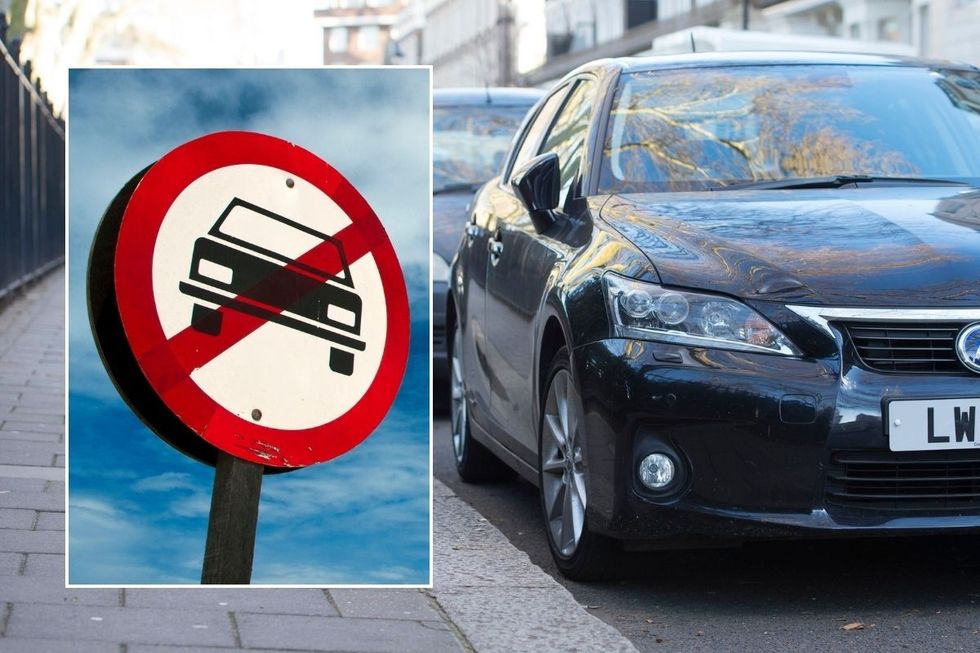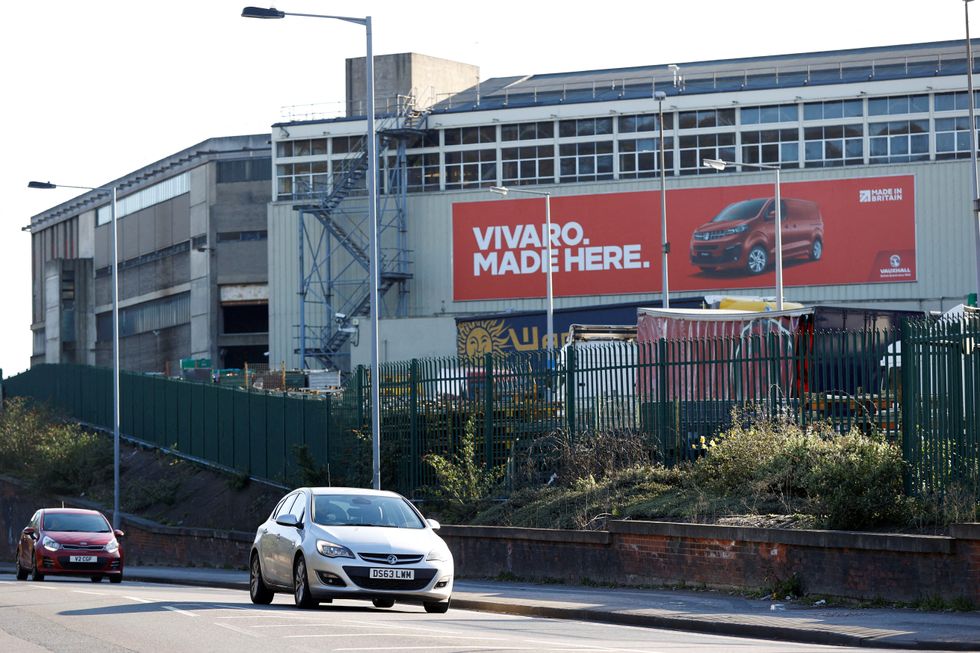WATCH: Richard Tice on Rishi Sunak's 2030 petrol and diesel car ban U-turn
GB NEWS
The proposals come as manufacturers around the continent close factories and cut jobs
Don't Miss
Most Read
Trending on GB News
One of the largest political parties in the European Union is calling for major changes to be made to weaken the impact of vehicle emissions targets.
At present, the European Union will ban the sale of any new vehicles which emit CO2 by 2035 to meet its goal of having the transport sector be carbon neutral by 2050.
Dutch MEP Jan Huitema, who drafted the report on the EU's CO2 standards for new vehicles, noted that most people would opt for electric cars, but hydrogen and e-fuels would also be a "good solution".
The centre-right European People's Party (EPP) is calling on Brussels, automakers and national governments to boost the manufacturing sector by "reversing" the 2035 ban.
Do you have a story you'd like to share? Get in touch by emailingmotoring@gbnews.uk

The EU could be pressured into watering down targets to ban the sale of new petrol and diesel cars
GETTY/PAThis would allow for the sale of combustion engine cars that run on biofuels and other alternative fuels beyond 2035, according to Reuters.
The EPP added that further support should be given to support plug-in hybrid vehicles, as well as calling on the EU to launch a review of the 2035 policy as soon as next year.
It points to continued turmoil across the continent with manufacturers making massive job cuts and unions leading mass strike action at some of the biggest factories around Europe.
Speaking earlier this week, Renault boss Luca de Meo, who also leads the European Automobile Manufacturers Association (ACEA), said the current policy meant the car sector could face €15billion (£12.36billion) in net zero fines.
He added: "Those that have set the rules have not provided the necessary market conditions, charging infrastructure, stable incentive schemes, pricing of energy etc, etc."
Volkswagen has announced that it will close three factories in Germany, prompting mass outrage and sharp criticism from the nation's biggest union as the brand looks to save around €1.5billion (£1.23billion).
Volkswagen's chief negotiator Arne Meiswinkel said the brand and unions were "still a long way from a viable solution". However, the discussions were "constructive".
It comes as Vauxhall owner Stellantis unveiled plans to shut the historic Luton van plant and put 1,100 jobs at risk by moving EV operations to its Ellesmere Port factory in Cheshire.
The UK Government has yet to confirm when the sale of new petrol and diesel cars will be outlawed, despite a manifesto pledge to reinstate the original 2030 deadline.
There have been suggestions that Labour could ban the sale of new petrol and diesel cars and vans from 2030, but allow the sale of hybrid vehicles until 2035.
This has been met with mixed responses from industry experts. Some argue that this will not reduce emissions as quickly as is needed to reach net zero, while some say this will allow car brands more time to develop EVs at a cheaper rate.
Speaking previously to GB News, a Government spokesperson confirmed that it would set out further details regarding the car ban deadline "in due course".
LATEST DEVELOPMENTS:
- Jaguar 'woke' rebrand is a 'significant risk' and has caused used car sales to drop - 'Not encouraging!'
- Drivers demand car insurance changes to end 'misleading' practice of missing cover that could cost £700
- Millions of Britons face Christmas traffic carnage with long delays as AA issues rare amber warning

Vauxhall's Luton van factory will be shut down following restructuring by parent company Stellantis
REUTERSThey added: "We're committed to delivering greener transport by supporting the transition to electric vehicles.
"We will provide certainty to manufacturers by restoring the 2030 phase-out date for new petrol and diesel cars, and are committed to accelerating the rollout of electric vehicle charging infrastructure."








